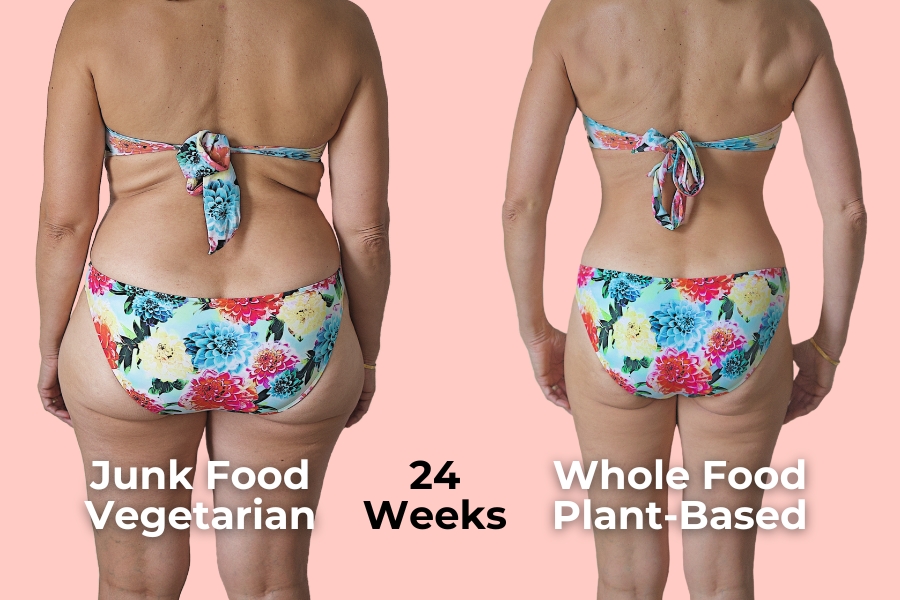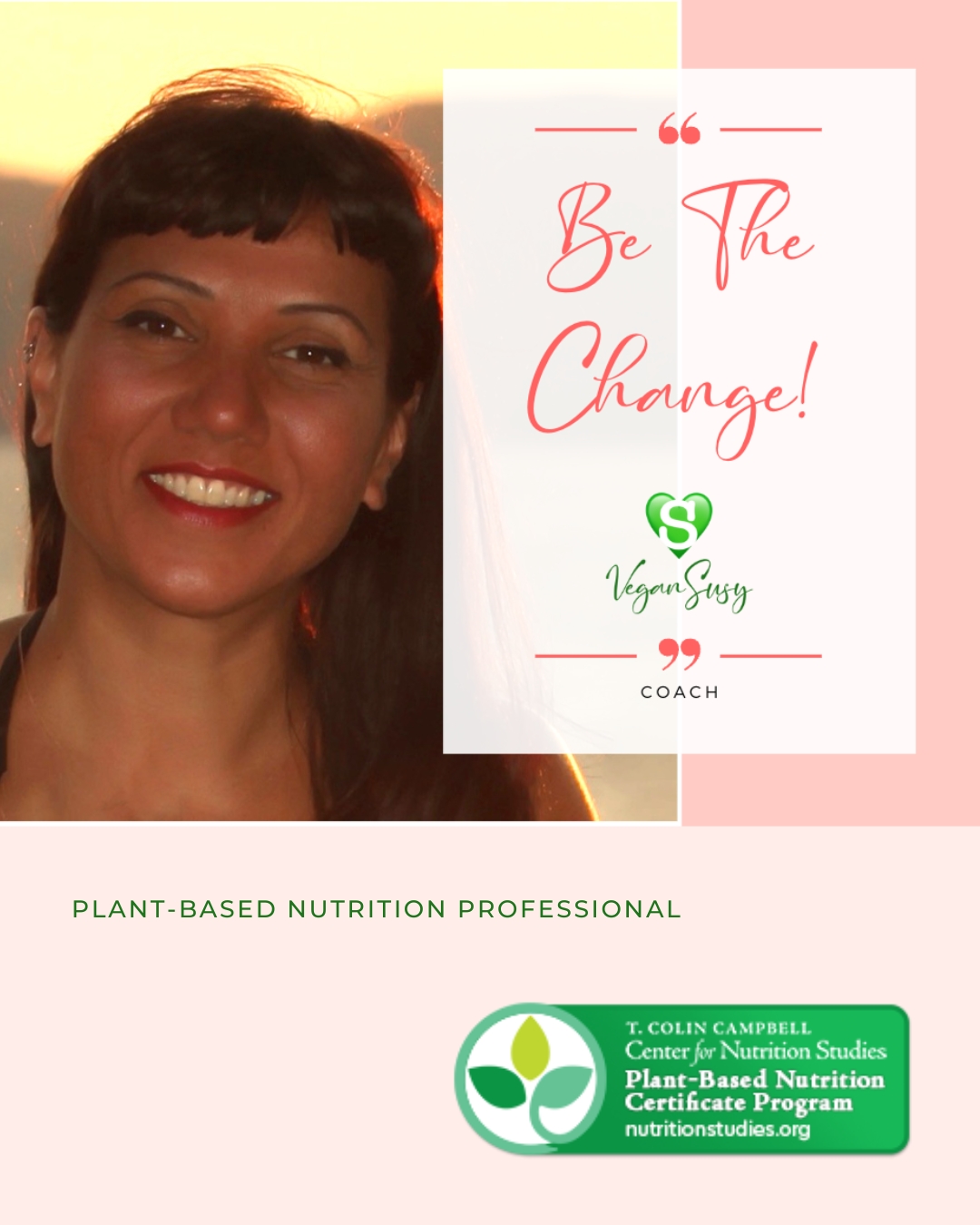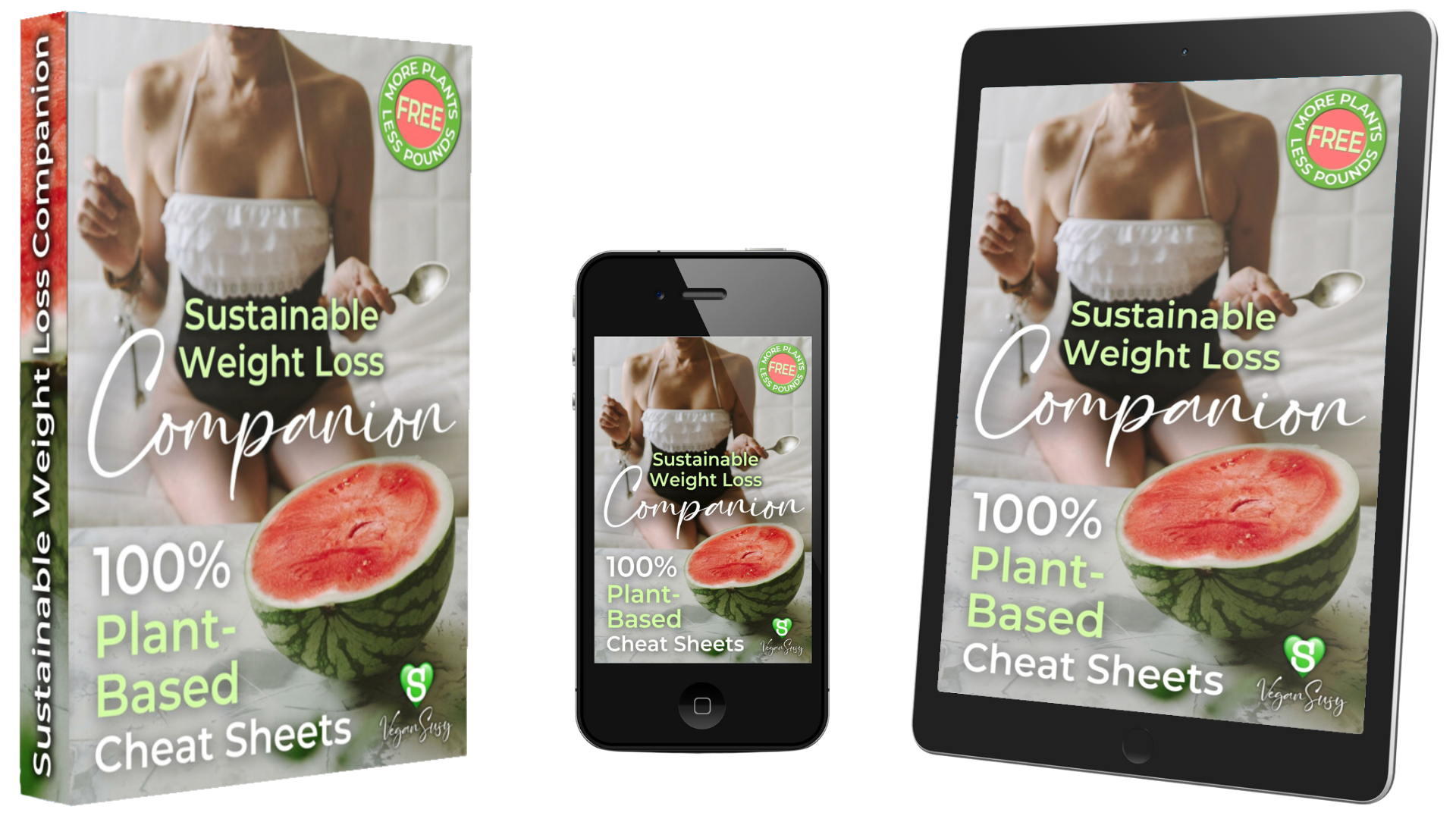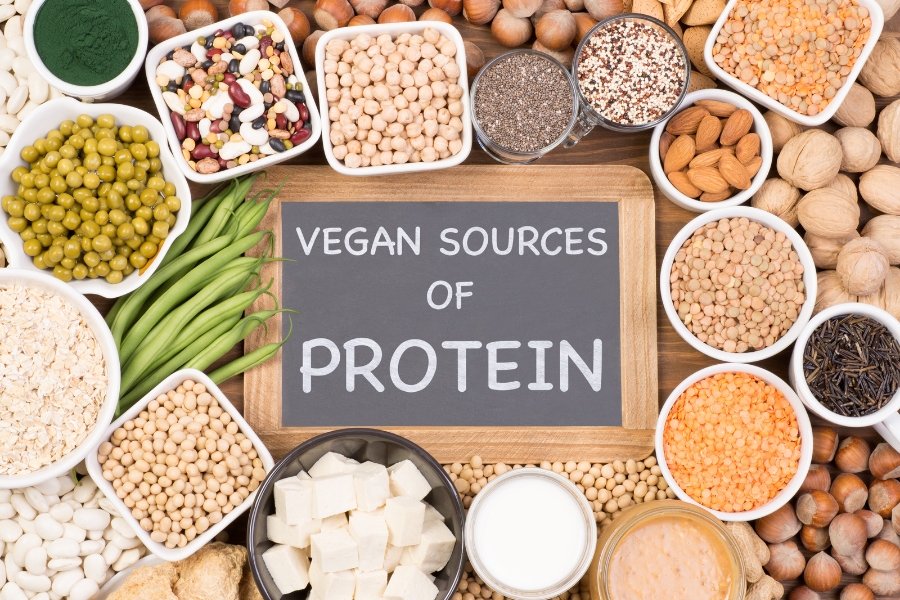
Browse our fun-packed, helpful plant-based articles, and delve deeper into this healthy, sustainable lifestyle!




Why Go Vegan? Exploring the Benefits of a Plant-Based Lifestyle
Plant-Based Lifestyle Tips For Women
Author: Plant-Based Susy
More and more people are choosing to go plant-based, and for many good reasons.
Choosing a plant-based lifestyle is more than just a diet—it’s a conscious decision to live with greater compassion, health, and purpose.
For many, the desire to reduce animal suffering is at the heart of this shift. For others, it’s the holistic health benefits, environmental impact, or social responsibility that inspire change.
Embracing a vegan way of eating means avoiding animal products like meat, dairy, eggs, and honey, and instead focusing on nourishing, whole foods—fruits, vegetables, legumes, grains, nuts, and seeds.
When thoughtfully planned, a plant-based diet provides all the essential nutrients your body needs—including protein, iron, calcium, B12, and omega-3s.
While transitioning may feel challenging at first, like for some people embarking on a Veganuary challenge, for example, it can also be one of the most rewarding and empowering lifestyle choices you ever make.
From boosting your energy to reducing your environmental footprint, the benefits ripple out in powerful ways.
In the sections ahead, we’ll explore the top reasons why more people than ever are choosing to go vegan and plant-based—and how you can start or deepen your own journey.

Table of Contents:
Health and Nutritional Benefits of Going Plant-Based
Many people choose to adopt a vegan lifestyle for ethical reasons, but there are also several health and nutritional benefits to going plant-based.
While ethical considerations often drive individuals to embrace a vegan lifestyle, the health and nutritional advantages of this dietary choice are equally compelling.
Opting for a plant-based diet can lead to numerous health benefits, supported by scientific research and anecdotal evidence.
1. Lower Risk of Chronic Diseases
Studies by the Journal of the American Heart Association and the American Journal of Clinical Nutrition, among others, have shown that a plant-based diet, such as veganism, is associated with a lower risk of chronic diseases, including heart disease, hypertension, type 2 diabetes, and certain types of cancer.
By eliminating or reducing the consumption of animal products, individuals may experience improvements in cholesterol levels, blood pressure, and blood sugar control, thus reducing their susceptibility to these debilitating conditions.

2. Weight Management
A well-planned whole food plant-based diet tends to be lower in calories and saturated fats while being higher in fibre and essential nutrients compared to a typical omnivorous and even vegetarian diets.
As a result, individuals may find it easier to achieve and maintain a healthy weight while following a vegan or plant-based lifestyle.
Additionally, plant-based whole foods are often more filling and nutrient-dense, promoting satiety and reducing the likelihood of overeating.
The new, improved More Plants💚Less Pounds program, created by our very own nutrition professional Plant-Based Susy, is the perfect next step for midlife women looking for a sustainable weight loss solution.
3. Increased Intake of Nutrient-Rich Foods
Healthier vegan diets prioritise whole, minimally processed plant foods such as fruits, vegetables, legumes, nuts, seeds, and whole grains.
These foods are rich in essential vitamins, minerals, antioxidants, and phytonutrients that are vital for overall health and well-being.
By consuming a diverse range of plant-based foods, vegans can easily meet their nutritional needs and may even exceed recommended intakes for certain nutrients.
4. Improved Digestive Health
The high fibre content of plant-based foods supports healthy digestion and regular bowel movements.
Plant-based fibre helps to promote gut health by nourishing beneficial gut bacteria, preventing constipation, and reducing the risk of digestive disorders such as diverticulosis and colorectal cancer.
Whole food vegan diets, abundant in fibre-rich plant foods, contribute to optimal digestive function and may help to alleviate gastrointestinal discomfort.

5. Enhanced Longevity
Research suggests that adhering to a vegan diet may contribute to longevity and a lower risk of premature mortality.
The combination of reduced exposure to harmful dietary components found in animal products and increased consumption of protective nutrients from plant foods may play a role in extending lifespan and promoting overall vitality.
Embracing a vegan lifestyle offers numerous health and nutritional benefits that can enhance quality of life and reduce the risk of chronic diseases.
By prioritising whole, plant-based foods and avoiding animal-derived products, individuals can nourish their bodies, protect their health, and contribute to a more sustainable and compassionate world.
Essential Nutrients in a Plant-Based Diet
A well-planned plant-based diet can provide all the necessary nutrients for good health. It is important to include a variety of fruits, vegetables, whole grains, beans, nuts, and seeds in the diet to ensure that all essential nutrients are obtained.
Protein can be obtained from plant-based sources such as beans, nuts, and whole grains. Iron can be obtained from leafy green vegetables, beans, and fortified cereals.
Calcium can be obtained from fortified plant-based milks, leafy green vegetables, and tofu. Vitamin B12, which is essential for nerve function and the formation of red blood cells, can be obtained from fortified plant-based milks and cereals or from supplements.
Whole food plant-based diets are also high in fibre, which can aid in digestion and reduce the risk of certain diseases. Fruits and vegetables are rich in vitamins and minerals, including vitamin C, potassium, and magnesium.
A well-planned vegan diet can help prevent chronic diseases. By including a variety of whole, plant-based foods in the diet, individuals can obtain all essential nutrients and achieve better overall health.
If you need help or advice about how to go plant-based or vegan while meeting your nutritional requirements, don’t hesitate to contact us here at Lean Plant-Based today!
Plant-Based Susy is a certified plant-based nutrition professional with years of experience in helping people go vegan and plant-based, and she’ll be delighted to talk to you and offer her expert advice.

Environmental and Ethical Considerations
Going plant-based is an ethical and environmentally friendly choice that more and more people are making. This section will explore the impact of a vegan diet on the planet, wildlife, and animal welfare.
By choosing a vegan lifestyle, individuals can significantly reduce their carbon footprint, conserve water resources, and minimise deforestation associated with animal agriculture.
Moreover, opting for plant-based alternatives promotes compassion towards animals, advocating for their welfare and contributing to a more sustainable future for all living beings on Earth.
Impact on the Planet and Wildlife
Meat and dairy production have a significant impact on the environment. Animal agriculture is responsible for a large percentage of greenhouse gas emissions, deforestation, and water use.
According to a study by the University of Oxford, a vegan diet is probably the single biggest way to reduce your impact on the planet, not just greenhouse gases, but global acidification, eutrophication, land use and water use.
Fish farming also has a significant impact on the environment. Fish farms produce waste and pollution that can harm local ecosystems and wildlife. Overfishing is also a major problem that threatens the health of our oceans and the survival of many species.

Animal Welfare and Ethical Choices
Vegans choose to avoid animal products because they believe in the ethical treatment of animals. Factory farms and slaughterhouses cause huge amounts of animal cruelty and exploitation. Many animals are kept in cramped and unsanitary conditions, and they often suffer from disease and injury.
Male calves born on dairy farms are often killed shortly after birth because they are not needed for milk production. Similarly, male chicks in the egg industry are often killed because they are not profitable.
By choosing a plant-based diet, individuals can reduce their contribution to animal suffering and exploitation. Veganism is a compassionate lifestyle that promotes the right to life and freedom from fear and exploitation for all animals.
In summary, going plant-based is an ethical and environmentally friendly choice that can have a positive impact on the planet, wildlife, and animal welfare. By choosing to avoid meat, dairy, and other animal products, individuals can reduce their carbon footprint, promote sustainable agriculture, and live a compassionate lifestyle.
Frequently Asked Questions
What are the health benefits of going plant-based?
A plant-based diet has been shown to have a variety of health benefits. Studies have shown that vegans tend to have lower rates of heart disease, hypertension, and type 2 diabetes.
Additionally, a whole food vegan diet can help with weight management, as plant-based foods tend to be lower in calories and unhealthy fats, and higher in fibre than animal-based foods. Vegans also tend to have lower levels of inflammation, which can help protect against chronic diseases.
How does veganism impact animal welfare?
Veganism is a lifestyle that seeks to minimise animal suffering as much as possible. By adopting a plant-based diet, individuals are choosing to abstain from eating meat, dairy, and eggs, all of which come from animals. This choice can help reduce the demand for animal products and ultimately lead to fewer animals being raised for food.
Additionally, vegans avoid other animal-derived products, such as leather and wool, in order to further reduce their impact on animal welfare.
Can you highlight the environmental advantages of a plant-based lifestyle?
The production of animal products is a major contributor to environmental degradation. Animal agriculture is responsible for a significant portion of greenhouse gas emissions, and the industry is also a major source of water pollution and deforestation.
By adopting a plant-based lifestyle, individuals can help reduce their carbon footprint and minimise their impact on the environment.
In what ways is veganism different from vegetarianism?
While both vegans and vegetarians avoid eating meat, there are some key differences between the two lifestyles. Vegetarians may still consume dairy and eggs, while vegans avoid all animal products.
Some vegetarians may choose to consume fish (and are called ‘pescetarians’), while vegans avoid all animal-derived food products.
Who are some well-known individuals who follow a vegan diet?
There are many well-known individuals who follow a vegan diet, including movie stars Brad Pitt, Woody Harrelson, Joaquin Phoenix, Natalie Portman and Alicia Silverstone, pop stars Miley Cyrus, Moby, Beyoncé, Ariana Grande and Billie Eilish, as well as tennis stars Venus and Serena Williams and Novak Djokovic, and F1 racing driver Lewis Hamilton.
These individuals have all cited health, environmental, and ethical reasons for adopting a fully vegan or plant-based lifestyle.

💚 "Happy Plant-Based Eating!" 💚

Plant-Based Susy
Plant-Based Nutrition Professional & Weight Loss Coach
Empower Yourself: Embark on a Delicious Fat Loss Adventure



🍉 Get Ready to Jump Start Your Fitness Goals AND DISCOVER A HEALTHIER YOU!
🍉 Let's Make Your Fat Loss & Optimum Health Journey a Delicious Success Story!
🍉 Get The FREE Sustainable Weight Loss Companion eBook and CHEAT SHEETS!
More Free Resources
Unlock Your Transformation Today!












Facebook
Instagram
Youtube
Pinterest